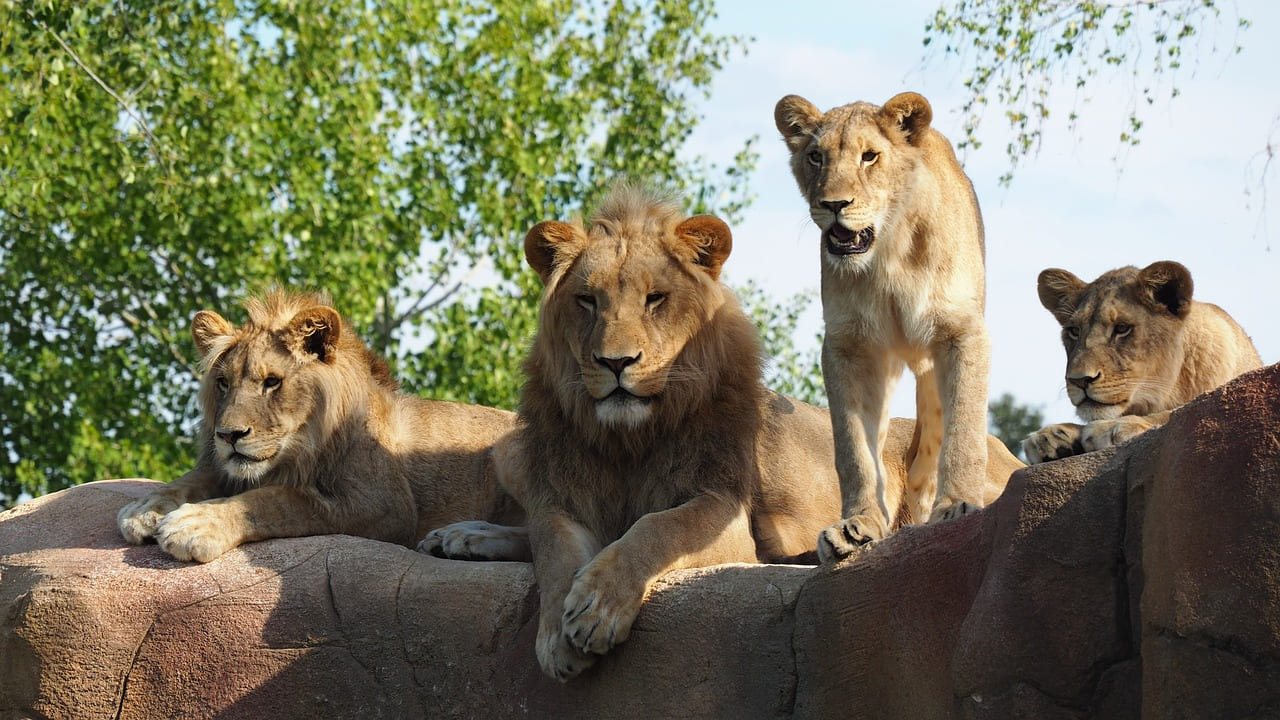Lion
The lion, often called the "king of the jungle," is one of the most iconic animals on Earth. These majestic big cats are symbols of strength, courage, and pride. Native to Africa and a small region in India, lions thrive in savannas, grasslands, and scrub forests. In zoos, lions are among the most popular exhibits, inspiring awe and admiration in visitors of all ages.
Lions are the second-largest big cats after tigers. Male lions are easily recognized by their majestic manes, which vary in color from blonde to dark brown and even black. A lion's mane is a symbol of its strength and virility, with darker, fuller manes often indicating a healthier male.
Lions are unique among big cats because they are highly social, living in groups called prides. A typical pride consists of a few males, several females, and their cubs. Within the pride, females are the primary hunters, working together to take down large prey, while males defend the territory and cubs from rival lions.
Lions are apex predators that primarily hunt medium- to large-sized herbivores, such as zebras, antelopes, and buffalo. They are opportunistic hunters, using stealth and teamwork to ambush prey. In zoos, lions are fed a diet of fresh meat, often supplemented with bones and enrichment feeding to replicate the challenges of hunting.
In zoos, lion habitats are designed to mimic the savanna, with open spaces for roaming, shaded areas for resting, and water features. Enrichment activities, such as scent trails and hanging toys, encourage natural behaviors like stalking, pouncing, and play. Visitors often enjoy hearing lions roar, a sound that can be heard up to 5 miles away, showcasing their dominance and communication skills.
Lions are classified as vulnerable, with populations declining due to habitat loss, human-wildlife conflict, and poaching. Zoos play a crucial role in lion conservation by participating in breeding programs and educating the public about their ecological importance. By observing lions in zoos, visitors gain a deeper understanding of the challenges they face in the wild and the need for global conservation efforts.

